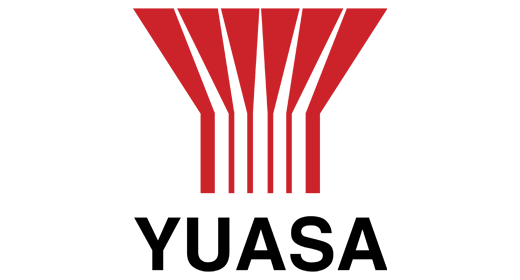Powering Defence: The Indispensable Role of UPS Systems
The United Kingdom's defence sector serves as the bedrock of its national security, safeguarding the country's citizens and sovereignty against potential threats. A key contributor to this sector's robustness is the uninterruptible power supply (UPS) systems that provide critical power backup support during unexpected outages. UPS systems in the defence sector ensure operational continuity and play a significant role in safeguarding classified data and high-value infrastructure. This article delves into the profound relationship between the UK defence sector and UPS systems. We will also explore the interplay of defence collaborations and emerging defence technologies. Join us as we demystify this multi-layered relationship and understand the importance of UPS within the complexities of the UK's defence sector. Join us as we delve into the many layers of this exciting topic!
Overview of the UK Defence Sector
A robust pillar of the nation's economy, the UK defence sector plays a pivotal role domestically and globally. This industry, marked by cutting-edge technology and a skilled labour force, continues to evolve rapidly to meet the unique needs and threats of the twenty-first century. For this article, we have delved into an employment overview of the sector and the anticipated market growth in the upcoming years.
Employment Overview
The UK defence industry is a sizable employer within the country. This ever-evolving sector directly employed around 132,000 individuals in 2019. This figure reflects a small, albeit meaningful dip compared to 2018, which saw 135,000 people working in this industry. Nonetheless, these figures reveal this sector's significant role in the UK employment landscape.
The industry offers vast and fruitful opportunities for both civilian and military personnel. In fact, these job opportunities extend beyond the industry's immediate boundaries. Local communities benefit from their catalytic effect on growth and support for indirect jobs in procurement, maintenance, and services sectors. Among these professionals are experts dedicated to maintaining and optimising UPS systems, which are crucial for the seamless operations of the defence sector.
Projected Market Growth
Leveraging modern technologies, including advanced UPS systems and sustainable strategies, the UK defence industry is expected to experience significant growth in the coming years. Forecasts indicate the market may surpass £60 billion by 2028. This involves a promising Compound Annual Growth Rate (CAGR) of 3.12 per cent, suggesting positive market dynamics over the next decade. The integration and maintenance of UPS systems play a crucial role in this projected growth, ensuring that the defence sector remains resilient against power disruptions and is equipped to handle unforeseen challenges.
This growth projection signifies the vast potential of the UK defence market, indicating its development can influence economic stability. It is a testament to the industry's resilience and adaptability amidst global geopolitical uncertainties and altering national security scenarios. The role of UPS systems further underscores the importance of having a robust infrastructure to support the sector's advancements and operations.
To sum up, the UK defence sector is an impressive industry. As we look ahead, continuous focus on technological innovation, including the integration of reliable UPS systems, and strategy optimisation could fuel the industry's growth. Creating opportunities for domestic employment and contributing to the nation's global defence commitments, the sector's outlook makes it a fascinating subject of study and understanding.

Significance of UPS in Defence Sector
Never underestimate the power of a well-functioning Uninterruptible Power Supply (UPS) system, especially in the defence sector. UPS plays a crucial role in providing a constant and stable power supply for defence operations and serves as a reliable ally during power fluctuations or outages.
The UK UPS Systems Market's Growth
Interestingly, the United Kingdom is one of the prominent players in the market for UPS systems. The demand for these power-protection solutions is consistently on the rise, majorly driven by industries like defence. If you go by the projected figures, the UK UPS Systems market is anticipated to flourish at a steady Compound Annual Growth Rate (CAGR) of 1.6% from 2022-2028. This projected growth, while appearing modest, signifies a burgeoning market, mirroring the importance and growing reliance on these robust systems across various industries.
Importance of Security Measures
Worries about power outages or fluctuations are a thing of the past for sectors like defence, thanks to UPS Systems. They serve as a robust shield, mitigating the potential risks related to power supply. After all, in the defence sector, there's no room for errors, and maintaining a continuous power supply is paramount. The slightest delay or disruption can lead to repercussions beyond repair, emphasising the criticality of a trusty UPS system in the security mesh.
Usage of UPS in Various Sectors
While industries such as telecommunications, healthcare, and data centres were traditionally the buyers of UPS systems, a shift is underway. Today, the UK defence industry is emerging as a significant buyer of rugged UPS and custom UPS systems. These systems are making their mark not just in defence, but across multiple sectors including marine, transport, and industrial. This trend is indicative of their versatility and effectiveness, making them an essential component in many settings.
As defence and similar sectors come to terms with the need for robust, consistent power supply amid their rigorous and sensitive operations, the demand for UPS Systems is bound to surge further. Their role extends beyond merely providing backup; they're transformative tools enhancing operational efficiency whilst securing power supply thoroughly. It's safe to say, the UPS, in many ways, is proving to be the unsung hero of the defence sector.
Global Defence Collaborations
In the complex world of geopolitics where alliances can shift like sand in the desert wind, defence collaborations have grown vital as nations come together to address shared security threats. An integral part of these collaborations is ensuring partner nations have reliable power infrastructure. UPS systems play a pivotal role by ensuring that joint operations and shared defence facilities are not compromised by power disruptions. The strategic partnerships and alliances allow national defence systems to leverage each other's weapon systems, technology, and strategic knowledge to make a collective impact. From the UK's partnerships with Western weapons manufacturers to enhance Ukraine's domestic defence industry to the increasing defence exports to the Asia-Pacific region, these global collaborations underscore the importance of shared interests, cooperation, and robust power infrastructure in ensuring global security.
Partnership of the UK & Western Weapons Manufacturers
The UK Ministry of Defence has recently embarked on a novel initiative by partnering with Western weapons manufacturers to buoy up the domestic defence industry in Ukraine. This collaboration signifies a pivotal turn in defence strategy, highlighting the importance of aligning with allies to bolster shared security interests.
As these partnerships focus on advanced weaponry and systems, the role of UPS becomes increasingly crucial. UPS systems provide reliable power to maintain strategic advantage during weapons manufacturing, testing, and deployment. By evoking a team spirit in defence manufacturing, this partnership aims to enhance the technologically advanced capabilities of Ukraine's defence industry. Moreover, it holds the prospect of providing potent real-time responses to emerging threats, thereby strengthening the nation's overall security structure. Ultimately, this collaboration underscores the significance of defence partnerships and the essential role of robust power infrastructure in fortifying global security arrangements.
Emerging Technologies in the Defence Industry
As one navigates the ever-evolving landscape of the defence industry, it becomes increasingly clear that emerging technologies are reshaping its contours and revolutionising how defence strategies are implemented. From AI to advanced communication systems, these cutting-edge technologies are propelling the defence sector into new possibilities, paving the way for a more efficient and technologically advanced military landscape. These technologies are integral to modern defence operations, and the need for uninterrupted power is growing.
Booming Investment in Military Tech Start-Ups
On one hand, the defence industry is seeing an unprecedented surge in investments being funnelled into military tech start-ups. Why, might you ask? Well, this is mainly driven by the mounting global tensions and the urgent need to stay ahead in the defence sector. Start-ups are zooming in on innovative technologies, such as artificial intelligence (AI), machine learning, and IoT, to engineer cutting-edge solutions that could potentially change the dynamics of modern warfare. As a result, they are attracting substantial financial backing to make these high-stakes projects a success.
Use of Security AI and Automation
Regarding artificial intelligence, the use of automation is impacting the field of defence. To put it into perspective, organisations deploying substantial security AI and automation have been reported to enjoy average savings worth a whopping $1.76 million compared to those not striding towards automation. Such gains are attributed to the marked reduction in manual hours and the corresponding increase in productivity that automation brings about.
Operational Launch of NATO's Defence Innovation Accelerator (DIANA)
Equally noteworthy, NATO's Defence Innovation Accelerator for the North Atlantic, or DIANA, has recently launched its first program. This is a significant milestone in the quest for innovative defence technologies. DIANA's primary objective is to connect visionary entrepreneurs to the defence sector. The ultimate goal? Unleashing groundbreaking solutions that meet NATO's exacting requirements and boost its overall defence capabilities.
Alignment of UK Defence Technology Sector with Ministry of Defence's Defence Digital
Taking a leaf from their book, the UK's defence technology sector has moved in tandem with the Ministry of Defence's Defence Digital program. As this alignment sees the defence sector fully embracing digitisation to enhance its strategic impact, digital transformation inherently requires a stable power source. UPS systems ensure that the digital tools and platforms used in defence remain operational, increasing efficiency and adaptability. Thanks to this partnership, the defence industry can respond more swiftly to emerging threats, streamline operations, and maximise the potential of digital technologies. In the ever-evolving arena of defence, it's evident that emerging technologies, bolstered by reliable power solutions like UPS, are not mere projections but tangible realities shaping the present and future of the defence sector, pushing boundaries, and setting new benchmarks.
Conclusion
As we draw our exploration of the Uninterruptible Power Supply (UPS) systems within the UK defence sector to a close, it's clear that these systems are not just backup power solutions. They are foundational pillars, ensuring the sector's operational integrity and supporting everything from cutting-edge technologies to global defence collaborations. The defence sector, with its intricate web of technological innovations and partnerships, is inherently vulnerable to disruptions. This makes the reliability of UPS systems not just beneficial but essential.
The UK's defence landscape, marked by its collaborations, emerging technologies, and strategic alignments, underscores the importance of uninterrupted operations. In such a critical sector, even the slightest hiccup in power can have far-reaching consequences. Hence, the investment in reliable UPS systems becomes not just a matter of operational efficiency but of national security.
As the UK defence sector continues its trajectory of growth and innovation, the demand for steadfast power solutions like UPS is poised to rise. This is where Secure Power, with a comprehensive range of power backup solutions, stands out. Our commitment to delivering top-notch quality, ensuring uninterrupted power supply, and providing tailored solutions makes us an invaluable partner for a sector as pivotal as defence. Our expertise in the field, combined with a deep understanding of the unique requirements of the defence sector, positions us at the forefront of power backup solutions.
Looking ahead, the symbiotic relationship between the defence sector and power solutions like those offered by Secure Power is set to deepen. This partnership promises to drive innovations, enhance operational efficiencies, and fortify the UK's position in the global defence arena. With Secure Power at its side, the UK defence sector is poised for a future marked by resilience, dynamism, and unparalleled operational excellence.
Frequently Asked Questions
-
What is the role of UPS in the UK Defence sector?
UPS (Uninterruptible Power Supply) plays a critical role in the UK Defence sector by providing backup power during power failures or disruptions. It ensures the uninterrupted operation of crucial defence systems, communication networks, and sensitive equipment, preventing data loss and maintaining mission-critical operations.
-
What are the advantages of using UPS in the UK Defence sector?
Using UPS in the UK Defence sector offers several advantages. It provides protection against power outages, voltage fluctuations, and electrical surges, which can potentially damage critical equipment. It also ensures continuous power supply to sensitive systems, reducing the risk of downtime and maintaining operational readiness.
-
What types of UPS systems are commonly used in the UK Defence sector?
In the UK Defence sector, different types of UPS systems are used based on specific requirements. These include online UPS systems, which provide the highest level of protection and seamless power transfer, as well as line-interactive and offline UPS systems suitable for less critical applications.
-
How does UPS help in maintaining data integrity in the defence sector?
UPS plays a crucial role in maintaining data integrity in the defence sector by providing continuous power to servers, storage systems, and other data-sensitive equipment. In the event of a power failure, UPS allows the systems to operate smoothly on battery power until a backup power source or generator kicks in, ensuring uninterrupted data processing and preventing data corruption.
-
Are there any specific standards or certifications for UPS systems used in the UK Defence sector?
Yes, the UPS systems used in the UK Defence sector often need to meet specific standards and certifications. These can include military-grade certifications for environmental resistance and certification for protecting against electromagnetic interference and data leakage.














